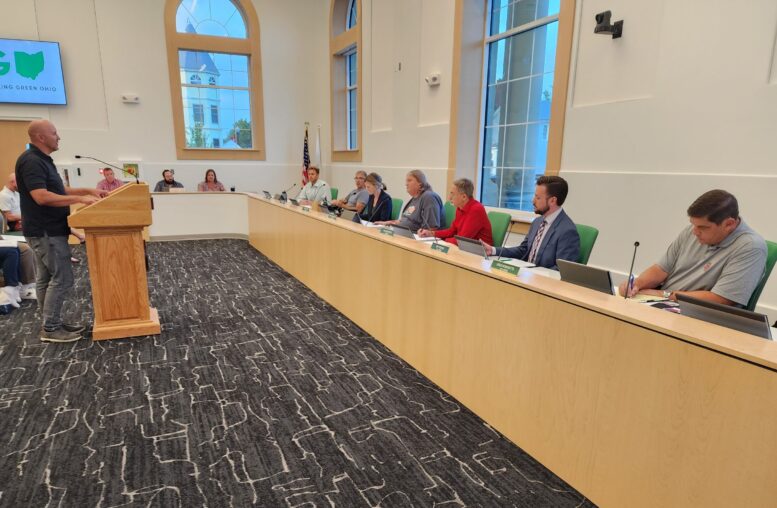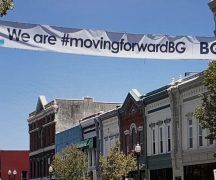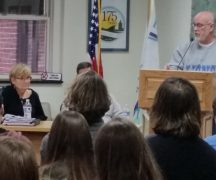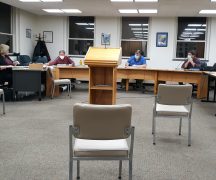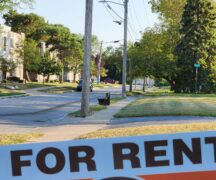By JAN LARSON McLAUGHLIN
BG Independent News
A landlord asked Bowling Green City Council Monday to reconsider an ordinance that would fade out non-conforming properties in the community. The change would “handcuff folks like me,” said Bryan Wiles.
Council heard the third reading of an ordinance that would sunset hundreds of non-conforming zoning uses in the city after 28 years. The legislation was tabled until council’s Sept. 18 meeting since a public hearing on the ordinance is set for Thursday (Sept. 7) at 6 p.m.
The change would make it difficult for small landlords like himself, according to Wiles, who said he owns just a handful of properties.
Wiles said good landlords in Bowling Green are often blamed for the problems caused by other landlords.
“I work really hard to provide safe housing,” he said. “But landlords are lumped into the same category as folks who don’t care about the community.”
Many of the homes that Wiles purchases for rentals are “distressed properties.” The ordinance would discourage landlords from buying those houses to renovate into rentals, he said.
The ordinance is intended to make properties conform to their zoning designation.
The primary non-conforming properties in the city are rental housing properties, Council President Mark Hollenbaugh said last month. Such “grandfathered” properties can house far more renters than under the current zoning code, he said.
Hollenbaugh explained that Bowling Green currently has “several hundred” properties considered pre-existing and non-conforming with the zoning code.
If the ordinance is adopted “in 28 years, all properties have to adhere to the zoning code.”
Currently, many properties are “grandfathered in,” meaning the old zoning continues to apply to existing uses, while the new zoning will apply to all future cases.
Hollenbaugh pointed out that City Council considered a similar ordinance in 1989. If that had passed, it would have gone into effect in 2019, he said.
The period of 28 years was selected because the city has to give someone who just bought a property the chance to recoup their investment. The IRS considers that period to extend 27.5 years.
With the adoption of the city’s updated zoning code earlier this year, that means an end to non-conforming uses.
“There would be no grandfathered property after 28 years,” Hollenbaugh said. “We have 28 years to prepare for it. It’s not going to be an overnight change.”

